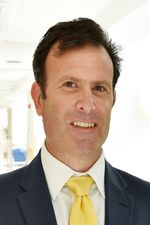After her 19-year-old niece was murdered by an ex-boyfriend, author and attorney Susan Omilian knew that she could be doing more to help victims of abuse. Omilian went on to launch My Avenging Angel workshops to help people move past their trauma and reclaim their lives.
“My workshops are about helping people transform. I want to help people live their best lives, helping them change patterns and shift their attitudes,” said Omilian at a recent Institute of Living Grand Rounds about mentoring survivors of trauma including domestic violence, child abuse or sexual assault.
Knowing that victims have been asked to share their stories and discuss their pasts countless times before, Omilian instead asks them to look toward the future.
“It’s a choice, to be a victim or survivor. I encourage them to move past being a survivor to a thriver,” she said.
The Avenging Angel workshops focus on three stages of recovery:
- Finding safety and stability, such as a safe place to live and a steady job, to break the cycle of abuse.
- Remembering, mourning and processing feelings of shame, grief and loss from past trauma history.
- Re-integration and connection.
Omilian leads people through activities such as journaling, writing and playing music, which allows for expression and rediscovery. Her workshops are often focused on goal setting, which helps victims reclaim their dreams and develop the means to achieve them. Follow-up seminars are also offered where participants develop vital skills such as financial management.
William Horgan, MD, MBA, Regional Medical Director of Quality and Safety in Hartford HealthCare’s East Region, helps to educate community advocates and health care providers on how to recognize victims of domestic abuse, especially strangulation. Horgan works closely with Safe Futures, a New London-based domestic violence agency providing help for people dealing with domestic abuse.
“All of these points are essential to assisting those impacted by domestic violence to empower them,” said Dr. William Horgan, Regional Medical Director of Quality and Safety in Hartford HealthCare’s East Region. “It is essential to remember that those impacted by domestic violence include all household and family members.”
Horgan works closely with Safe Futures, a New London-based domestic violence agency providing help for people dealing with domestic abuse. He helps to educate community advocates and health care providers on how to recognize victims of domestic abuse, especially strangulation.
“More than 50 percent of domestic violence occurs in the presence of children, so our goal of helping victims includes all family and household members that are exposed to domestic violence,” he said. “Recognizing that domestic violence often is not an isolated event, but a chronic form of abuse, many victims are unable to advocate for themselves and require extensive assistance that involves medical attention, safe housing, personal and family support, education, legal support and more.”



